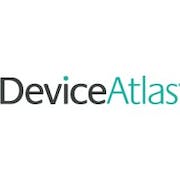Looking for the best Mobile Device Management Software? Our comprehensive buyers guide provides unbiased reviews, comparisons, and pricing information to help you make an informed decision. Streamline your device management today!
Mobile devices have become critical tools for business success. As the adoption of smartphones, tablets, and laptops increases, companies face significant challenges in managing these devices and keeping their data secure. Mobile Device Management (MDM) software is the solution that enterprises need to streamline device management, secure company data, and boost productivity. Choosing the right one can be an overwhelming task, given the plethora of options available in the market. In this buyer's guide, we will explore the features and benefits of this solution, and guide you through the essential considerations to help you make an agile business decision when selecting the right one.
What is mobile device management software?
Mobile Device Management software (MDM) has become a critical component for businesses that rely on mobile devices to conduct their daily operations. MDM serves as a centralized platform that manages, monitors, and secures all devices in a company’s mobile fleet, be it smartphones, tablets, or laptops. This technology allows companies to streamline their mobile device usage while ensuring the security of their data and applications.
The most common use cases for this system include:
-
Device provisioning: IT administrators can set up new devices with the necessary applications, configurations, and security policies to ensure compliance with company policies.
-
Policy enforcement: MDM enables companies to apply security policies to all devices in their fleet, such as password requirements, encryption, and two-factor authentication, ensuring data is less prone to vulnerabilities and hacking.
-
Asset management: It enables IT departments to follow the entire lifecycle of mobile assets from initial purchase, deployment, updates, and retirement.
-
Remote management: IT divisions can remotely control devices, troubleshoot issues, install new software and perform maintenance tasks promptly.
-
App management: It also adds a layer of security to the company's app ecosystem by permitting only authorized third-party enterprise apps and blacklisting potentially dangerous ones.
-
Reporting and analytics: The package provides analytical data on the entire mobile device infrastructure, including app usage, device statuses, security events, and more.
Many types of companies use MDM software, including healthcare, financial, retail, and manufacturing organizations. Any large or small company that uses mobile devices can benefit from such a solution. It helps to mitigate the risk of lost or stolen devices, ensuring data privacy, and securing sensitive company information.
What are the benefits of mobile device management software?
With an MDM platform, businesses can manage the entire lifecycle of their mobile devices, from the moment they are acquired, to when they are retired. Below are some of the main benefits of implementing this tool :
Security
MDM software ensures that sensitive company data is secure while employees use their mobile devices for work. Research by Dell shows that 60% of employees now use mobile devices for work purposes, so no business can go without MDM to accomplish these critical goals. It allows businesses to implement remote monitoring to control and enforce security policies such as password protection, remote wipe, and encryption. In the case of a security breach, MDM software also enables businesses to remotely wipe data from devices or even disable them entirely.
Device management
Businesses are able to manage all their mobile devices, including smartphones, tablets, and laptops, this includes monitoring device usage, controlling updates and installations, and configuring device settings. Mobile application management ensures that device usage is optimized and efficient, increasing employee productivity.
Compliance
It helps businesses to comply with relevant regulations by enforcing security policies and ensuring that sensitive company data is protected. It also tracks device usage, keeping businesses informed of any policy violations.
Support and maintenance
The system helps businesses to support and maintain their mobile devices by identifying and resolving issues quickly. It also enables businesses to automate software updates and device configuration management, reducing the time required to manage individual devices.
By implementing this solution businesses can effectively manage, monitor, and secure their mobile devices, resulting in increased efficiency and productivity. It also ensures that sensitive company data is protected and complies with regulations.
10 key features of mobile device management software
Managing mobile devices in the enterprise can be challenging, especially when you have hundreds or thousands of mobile endpoints to manage. Fortunately, and MDM application offers an intuitive and centralized solution that simplifies device management for IT administrators.
In this section, we will discuss its top 10 features that make it an indispensable tool for organizations looking to secure, monitor, and manage their mobile devices.
-
Device inventory management: It allows you to maintain an accurate inventory of all your mobile devices, including asset information, OS versions, installed apps, and more.
-
Remote device management: With an MDM system, IT administrators can remotely manage devices, including locking, wiping, and resetting devices if they are lost, stolen, or misplaced.
-
App management: Application management is a critical feature of this tool that allows administrators to control the use of apps on mobile devices, whitelist or blacklist apps, and push certain apps to devices.
-
Device configuration: It also provides the flexibility to configure devices according to business policies and personalization. Device configurations include email accounts, Wi-Fi settings, and custom profiles.
-
Security management: This technology ensures that mobile devices are secure by providing features such as device encryption, password policies, and VPN support.
-
Location services: With MDM Software, IT administrators can enable location services on mobile devices to track and monitor device locations.
-
Content management: This function allows administrators to control the sharing and access of content on devices, including documents, photos, and other media files.
-
Compliance management: It supports compliance regulations such as GDPR, HIPAA, and other industry-specific standards.
-
Reporting and analytics: MDM Software provides real-time insights and analytics on the status of devices and apps, enabling administrators to make informed decisions about device management.
-
Integration capabilities: It can also integrate with other software tools, such as mobile application development platforms, endpoint protection systems, and other enterprise tools.
Things to consider when investing in a mobile device management solution
Mobile devices are an essential tool for modern businesses, but managing them can be a complicated task. MDM software provides a centralized solution for keeping track of all the mobile devices in your organization, ensuring they are secure, up-to-date, and compliant with internal policies and regulations. Here are the most important factors to consider when selecting this solution:
-
Security: Mobile devices are becoming a popular target for cybercriminals. The system you choose should provide robust security features such as encryption, remote wiping, and strong password policies.
-
Device compatibility: It should be compatible with all relevant devices in your organization and should support a wide range of devices and operating systems, including iOS, Android, and Windows.
-
Ease of use: The one you choose should be easy to use and implement including having an intuitive interface, simple controls, and minimal learning curve.
-
Customization: Every business has unique needs, and MDM software should be able to accommodate them. The one you select should be fully customizable, allowing you to set up policies, controls, and restrictions tailored to your specific business requirements.
-
Scalability: As your business grows, you may need to manage more devices. The MDM package should be scalable and adaptable to accommodate the increased workload without compromising performance.
-
Integration: Your MDM application should seamlessly integrate with your existing IT infrastructure, including other software, systems, and network devices in your organization.
-
Support: Even the best MDM software can have issues, and in such cases, you need reliable support. Choose a vendor that provides comprehensive support, including documentation, training, and troubleshooting assistance.
-
Cost: Finally, cost is a crucial factor to consider when choosing this program. The price of an MDM program can vary depending on the features, support, and scalability you require. Consider your budget carefully and choose a vendor that offers a competitive price for the features you need.
Picking the right tool for your business is an important decision that requires careful consideration. By evaluating the factors mentioned above, you can ensure you choose a solution that meets your requirements, maximizes security, and minimizes management overheads.
Industry trends for mobile device management software
MDM investments are projected to be $21 billion by 2029. In 2024 and beyond, we can expect to see several MDM software trends that promise to transform the way businesses manage their mobile devices. These trends include:
-
AI-powered MDM: Artificial intelligence (AI) will continue to shape the MDM landscape in the coming years. We will see the emergence of intelligent MDM solutions that leverage AI-powered analytics to offer better device management and security.
-
Integration with cloud services: With the increasing popularity of cloud services, businesses will demand MDM solutions that integrate with cloud platforms like Google Cloud and Microsoft Azure. This integration will enable businesses to manage their mobile devices more efficiently, securely, and cost-effectively.
-
Focus on user experience: MDM vendors will focus on delivering superior user experiences to keep businesses satisfied. This includes streamlined user interfaces, personalized dashboards, and enhanced device visibility.
-
Enhanced security features: In response to growing security threats, MDM vendors will continuously improve their security features. This includes advanced capabilities like identity and secure access management, data encryption, biometric authentication, and remote wipe.
-
Increased adoption of BYOD policies: With more employees working from home, the Bring Your Own Device (BYOD) policies will continue to gain traction. MDM vendors will cater to this trend by offering better support for diverse mobile gadgets, including Android devices, iOS, and even wearables.
The above trends show the direction MDM software is heading in the coming years. We believe that businesses that adopt these trends will enjoy better mobile device management, improved security, and enhanced user experiences.
Conclusion
In summary, mobile device management software offers businesses a centralized platform for overseeing all devices within their organization, encompassing both hardware and software management. Its array of features spans from asset tracking to security enforcement, rendering it indispensable for businesses reliant on mobile devices for daily operations. It stands as a crucial asset for organizations grappling with the management and security of numerous mobile devices, providing a comprehensive suite of tools from app and compliance management to streamline device oversight. Fortunately, this solution has emerged as a potent solution to meet these critical business needs.









